What is ISO 27001:2013 Information Security Management System (ISMS)?
ISO 27001:2013 is an International Standard designed and formulated to help create a robust information security management system (ISMS). An ISMS is a systematic approach to managing sensitive company information to remain secure. It includes people, processes, and IT systems applying a risk management process. A comprehensive set of controls that comprise best practices in information security. It can help small, medium, and large businesses secure information assets in any sector.
The objectives of Information Security
Confidentiality – Property that information is not made available or disclosed to unauthorized individuals, entities, or processes.
Integrity – Property of protecting the accuracy and completeness of assets.
Availability – The property of being accessible and usable upon demand by an authorized entity.
Quick Navigation
What is Meant by Information Security Management in Businesses?
Businesses deal with many forms of information assets every day and have to secure them for decision-making and subsequent operations. ISO 27001 certification is a global accreditation that helps businesses validate whether their existing Information Security Management System (ISMS) is effective enough to protect their information assets. The Certification is as essential as the ISO 9001 certification, which ensures quality in the products/services of a business and highlights customer expectations. ISO 27001 certification similarly ensures that any information shared by customers, partners, suppliers, or investors is secured within your company.

To ensure the absolute security of your information assets, you must make your ISMS strong by regulating it with ISO 27001 certification. The following practices will help:
- Systematic assessment of every business information asset that either flaw in or will go out to some external source to identify privacy risks and vulnerabilities.
- Implementing uniform security controls that address the identified risks.
- Implementing a broad set of information security practices such as a firewall, malware protection, antivirus programs, restricted access of IT systems with password protection, multifactor authentication, and so on.
A Competent and ISO-certified ISMS will benefit your company in many ways.
- Builds recognition in the market and increases competitiveness.
- Boosts confidence of clients and stakeholders.
- Ensures efficiency in processes and reduces costs.
- Reduces the chance of data loss or privacy infringement that causes legal liabilities.
- Improve corporate reputation
The usefulness of ISO 27001 certification is outstanding and outweighs the certification costs. Organizations have a chance to grow when they have a standardized management system to regulate and manage their valuable information assets. They can deal with any vulnerability, uphold the integrity of their information assets, and win more clients.
Here’s A Video Tutorial About ISO 27001
What is ISO 27001 Certification?
The International Organization for Standardization has introduced ISO 27001 to emphasize the advancement of the security of the organization’s Information Management System. Adopting ISO/IEC 27001 ISMS will help businesses control costs while improving employee, customer, contractors, and suppliers’ engagement in risk-based thinking.

The ISMS strategy will reduce business exposure to risks and unplanned expenses by managing the risks of information confidentiality or control over personnel information, the loss of program integrity created by a lack of process documentation and accountability, and the loss of availability of products and services. ISO/IEC 27001 ISMS will deliver value by enhancing the organization’s cybersecurity reputation to attract and retain customers.
Classified Benefits of the ISO 27001 Certification
Organizations need the ISO 27001 certification to ensure the security of their confidential information and data assets. While it is not an obligatory standard, you should consider achieving it to ensure data security and sustain your business contracts. The standard assures your business partners that their essential data is safe with you. They may include companies, governmental agencies, investors, or individual service providers. The benefits of ISO 27001 can be classified into three types. Some are realized by the business, some by employees/staff, and some by the customers.
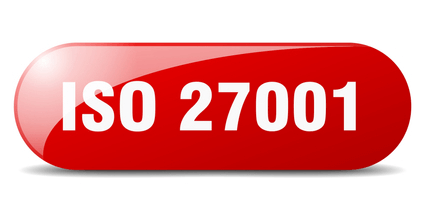
While the main aim for a business to have the ISO 27001 certification is to validate its Information Security Management System (ISMS), it also assures the following benefits:
- Protection of intellectual property, brand name, or reputation.
- Winning more new customers/more business from existing customers.
- Reduction in costs due to prevention of data security breaches.
- Reduction in operational disruptions or downtown due to sudden data losses/information system failures.
- Avoid civil suits due to non-abidance with general data regulations/statutory data regulations.
Staff benefits may include:
- Increase in trust in the organization and long-term association.
- Increased awareness of data security practices and performance improvement.
Benefits for Customers may include:
- Trust and assurance in sharing confidential information during purchases.
- Fewer chances of costly breaches.
Doing nothing for your ISMS when you have access to vast information assets and need regulatory management is never an option. Losing any data or encountering breaches can disrupt the whole business operation, besides damaging the corporate reputation. ISO 27001 certification helps to prevent risks to your information security by validating the practices of your ISMS. It is the key to continually improving, strengthening, and maintaining your ISMS to benefit your business, customers, and staff.
3 Reasons Why ISO 27001 Certification is Important for Businesses
ISO 27001 is the business certification that helps them prove their information asset confidentiality and demonstrates that information security risks are well managed. More precisely, ISO 27001 certification is the key to ensuring your business credibility as it asserts the security of your valuable information assets. ISO 27001 is like any other quality assurance certification, bringing significant business advantages.
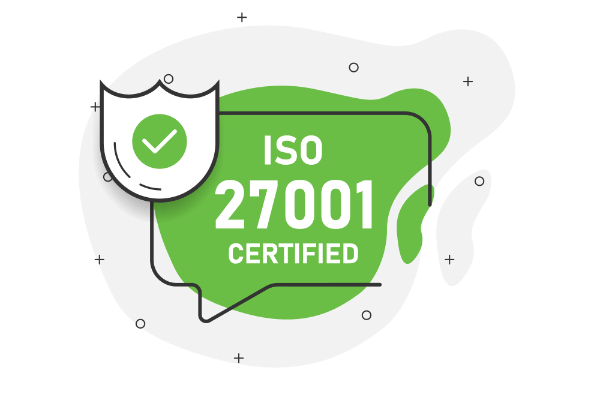
The following list will explain why ISO 27001 certification is so important.
1). Enhanced Business Reputation
Achieving certification is recognized as a global best practice to prove that organizations’ information security management system (ISMS) is reliable and competent. Thus, becoming ISO 27001 certified will prove that your organization will maintain a robust, practical, and consistent ISMS that will protect the confidentiality of customer, employee, and stakeholder information.
2). Advanced Risk Management
Certification ensures your organization has a planned risk-based approach to information security management. An ISMS should emphasize methods to discover threats, measure risks, and take corrective actions to prevent them. Advanced rule management will save your organization from potential fines or penalties for data privacy violations.
3). Become Competitive
Getting certified will also show customers and other businesses that your organization has put specific effort into providing security for information assets. If your organization operates in the financial or education industry that requires strict compliance with data security requirements, achieving ISO 27001 certification will effectively at you apart from competitors.
These benefits show that ISO 27001 certification will improve an organization’s processes, and the security of its informational assets, further enhancing its services. The certification process can be complex; therefore, hiring the TUV Austria Bureau of Inspection and Certification will ensure smooth implementations.
Importance of the ISO 27001 Certification in Law Firms for Information Security
Information Security is undeniably the top concern for firms in the law sector, considering the huge amount of sensitive and confidential data they deal with daily. Fortunately, to tackle this concern, they can achieve the ISO 27001 certification. This standard helps them establish a robust Information Security Management System (ISMS) or framework that enforces best data security practices. Many Law Firms today are getting certified with ISO 27001 to win the confidence of their valuable clients and get more lawsuits or cases.

The ISO 27001 certification is a critical strategic approach for businesses.
- Law firms are soft targets for cyber-attacks or intruders because they pool many sensitive data, including client data, corporate legal or business data, finances, taxes, capital assets, properties, and intellectual property assets.
- When any of the sensitive data gets into the wrong hands and is missed, it costs the law firm’s reputation. It has adverse consequences for the firm as it will face difficulties acquiring new clients.
- Implementing an ISMS based on ISO 27001 helps in the organized management of assets through definite classification and labeling of information. This represents misplacement or loss of assets.
- With the ISO 27001 certification, a law firm can demonstrate its commitment to best information security practices to clients, corporate organizations, regulators, and other stakeholders.
- ISO 27001 standard implementation requires law firms to continuously assess their data, information assets, and information systems risks. As a result, the ISMS enforced stronger security controls and improved practices to prevent or mitigate each risk.
Getting the ISO 27001 certification helps law firms protect their data’s confidentiality with stringent controls and enhances trust in the clients. Business clients deliberately look for firms that can keep all their data, litigations, and outcomes of the lawsuits highly secret for their corporate reputation. They look for firms that can handle litigation procedures without compromising their data privacy. Thus, a firm that is ISO 27001 certified naturally becomes its first choice.
Which Organizations Need the ISO 27001 Certification & Why?
ISO 27001 is the essential international standard for businesses that provides regulations and specific practices for implementing an information security management system (ISMS). ISO 27001 Certification is necessary for organizations to preserve their confidentiality and integrity by safeguarding all their valuable information assets, including customers’ and stakeholders’ data.
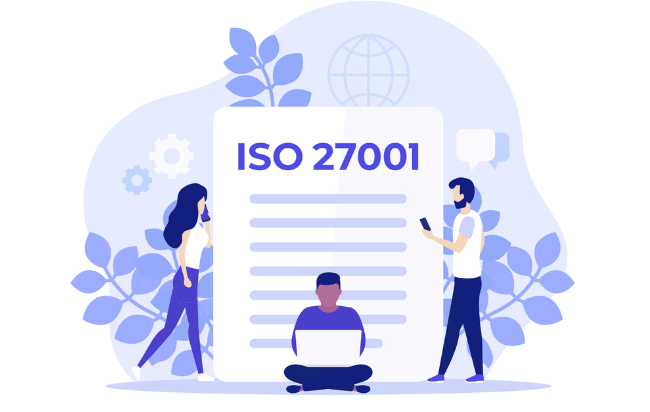
Information Security is undeniably an essential management aspect for every business to continue successful operations and maintain its relationships with stakeholders. Business information assets include customers’ data, crucial process data, employee details, financial information, and intellectual property assets. And written company-related information. Almost all businesses deal with these forms of information assets and hence need the iso 27001 certifications for their ISMS.
Businesses that deal with vast information and want to show their strong commitment to stakeholder’ confidentiality need the ISO 27001 certification. There are key benefits that your organizations can have, along with strengthened information security.
- Assured legal compliance with other statutory or legislative data regulations.
- Reduced costs of operations due to reduction in breaches or data losses.
- Improved process due to streamlining information management.
- Wider market opportunities for contracts.
- Competitive advantage in the market due to international ISMS certification.
Any breach or loss of information is never affordable because it damages stakeholders’ corporate reputation and trust and can make your business lose its position in the market. The ISO 27001 certification is tailored to every business type, scale, or size and its information management systems. It is implemented with the best security controls to eliminate every information security risk and ensure that confidential information is well protected. The certification helps organizations identify the potential risks and flaws in their information security management framework and asks them to implement a reformed ISMS.ensuring
The ISO 27001 Certification 5 Ways It Protects Your Organization’s Data Security
Organizations of all types and sizes are concerned about securing their information today as cyber-attacks, information breaches, and privacy infringements are increasing worldwide. Thus, all organizations need the ISO 27001 certification, an internationally recognized certification and the ultimate benchmark for information security management. It enables organizations to ensure data security by establishing, operating, and continually improving a robust Information Security Management System (ISMS).
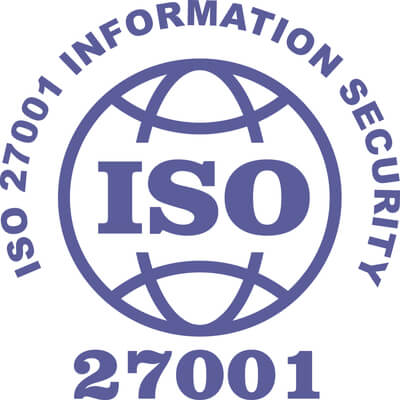
These are how the ISO 27001 Certification helps ensure Information security in your organization.
1). Improved Data Security Management – Implementation of an ISMS puts forth a set of practices and controls for information security across all processes and levels of the organization.
2). Regulatory Compliance – The ISO 27001 standard also needs your organization to comply with stringent data protection laws and other regulatory requirements.
3). Risk Assessment and Control – The ISMS, which aligns with your organization’s processes and technologies, help assess the potential security risks and determine controls to prevent them.
4). Continuous Improvement – The ISO 27001 standard, just like any other standard, focuses on continual improvement, which helps strengthen your ISMS to make it capable of addressing evolving cybersecurity challenges.
5). Establishment of Trust – Implementing ISMS and data security practices help your organization establish trust in customers and widens your scope to new customers.
If you still have not achieved the ISO 27001 certification for your business, you may be putting your business information and clients at risk. Make this certification a priority for ensuring your organization’s information security and winning your clients’ confidence. If achieving the certification seems challenging, get in touch with the TUV Austria Bureau of Inspection and Certification. They can help you through the implementation of an appropriate ISMS and make it ready for the ISO 27001 certification.
ISO 27001 Compliance Checklist for Organizations
Every organization that has to collect, handle, process, or store valuable information from its stakeholders, must achieve the ISO 27001 certification. It is recommended to achieve when their current information security efforts are inadequate to ensure privacy or prevent breaches from challenging data threats or cyber-attacks. It would be best if you strengthened your efforts by developing a definite Information Security Management System (ISMS), which includes all appropriate practices for information management and get it compliant with the requirements of the ISO 27001 standard.
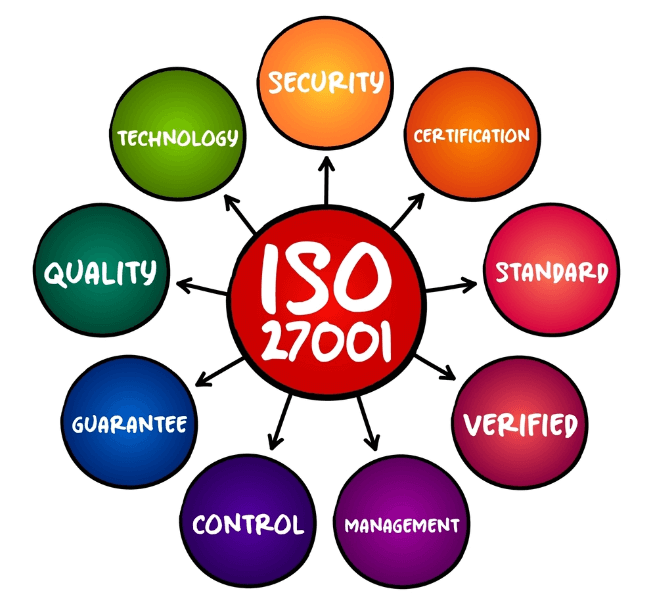
Achieving the ISO 27001 certification is a worthy goal for businesses, but if you are concerned about holding the trust of your clients, employees, and all other groups of stakeholders. Achieving it is a must. However, many business owners worry about the complexities of the certification process, including the implementation of the ISMS. However, if they are backed by a determined management team of the TUV Austria Bureau of Inspection and Certification, achieving ISO 27001 compliance becomes more effortless.
Checklist to achieve Compliance with ISO 27001
- Gap Analysis
It helps in finding the specific areas or practices of ISMS which are not compliant with ISO 27001 and determining what can be done.
- Prepare a Scope
You should know the information, data assets, intellectual property, etc., your ISMS should protect.
- Policy Development and Documentation
Set out a working policy of the ISMS that defines employees’ roles. Additionally, ensure that everything about ISMS is communicated well to staff with documentation.
- Do a Risk Assessment
Undertake assessment, identification, and analysis of risks to determine controls or practices for security.
- Implement Controls
Procedural controls and measures should be implemented to reduce the risks identified in the assessment.
- Staff Training
Employees should be provided with regular interactive training to make them aware of growing information security issues and how to use ISMS to prevent them.
- Internal Audits
Carry out periodic internal audits to ensure that all controls of ISMS are working effectively and that the conditions of the ISO 27001 standard are well met.
- Opt for Certification
To ensure ISO 27001 compliance with an internal audit, you need to opt for the certification by finding a registrar or certification body.
How to Implement ISO 27001?
Implementing ISO 27001 demonstrates an Organization’s commitment to continuously improving, developing, and protecting information assets/sensitive data by implementing appropriate risk assessments, policies, and controls. A company that is ISO 27001 certified is a sign to trust. They have an Information Security Management System (ISMS) in place. ISO 27001 is acknowledged by clients, suppliers, stakeholders, and others.

1. Scope and Plan
You can customize ISO 27001 certification scope to include only the products and services your clients care about. It does not have to cover every location, business unit, or product.
- Identify Project Stakeholders and Key Controls.
- Develop a Communication Plan.
- Define Priorities, Timeline, and System Scope.
- Define what success looks like.
- Complete audit application letter and statement of applicability.
2. Current State Assessment
- Initial Gap Assessment.
- Provide Detailed Recommendations.
- Checklist for all action items.
- Validate plan is actionable and right-sized.
3. Remediation Roadmap
- Provide detailed Recommendations for Gap’s customs to the organization.
- Develop project plan/timeline, resource plan, and budget.
- Validate plan is prioritized, actionable, and right-sized.
4. Program Implementation
- Policies and Procedures.
- Execute Risk Assessment.
- Pre Audit Prep Sessions/Training.
- Support during the external audit.
What is ISO 27001 Certification Process?
ISO 27001 is the key to information security risk management for organizations. It is a foundation for information security management (ISMS), a set of procedures and practices. It helps prevent information security risks such as loss of confidential data, hacking, privacy breaches, misuse of information, etc. In short, through this standard, an organization can make its ISMS competent and assure absolute information security.
- Hire an experienced Lead Auditor to understand the standard’s requirements and know how they can be achieved in your organization.
- Establish an ISMS policy that will include practices, scope, and roles o employees in information security management.
- Carry out a gap analysis of your existing information security framework and figure out what needs to be done to meet the standard.
- Get all your information, resources, and necessary training to support your ISMS implementation processes. The ISMS should be well integrated into your organization’s process, so every employee should agree with ISMS procedures and adopt them sincerely.
- With the help of qualified auditors, carry out internal auditing of your ISMS to assess its effectiveness and identify any lag in meeting the standard’s requirements.
- Arrange for a certification audit. The last step is contacting a certification agency like TUV Austria Bureau of Inspection & Certification, which will perform certification audits (Stage 1 and Stage 2) to ensure your organization is minutely conforming to the standard.
In TUV Austria Bureau of Inspection & Certification, ISO 27001 standard is about building an ISMS that can strengthen your information security, boost clients’ confidence, grow your credibility in the industry and boost your ROI. However, achieving ISO certification ideally is still unknown to many organizations. Fortunately, the TUV Austria Bureau of Inspection & Certification assists organizations in passing these steps effortlessly and helping them maintain their certification later.
What are ISO 27001 Requirements?
At least 15 different documents are required for ISO/IEC 27001:2013:
- Scope of ISMS.
- Policy.
- ISMS Risk Assessment process.
- Information Security Risk Treatment Process.
- ISMS Objectives.
- Evidence of the competence of the people doing work on Information Security.
- Other documents are deemed necessary by the organization for ISMS.
- Operational Planning and Control Documents.
- Result of Information Security Risk Assessments.
- Results of Information Security Risk Treatment.
- Documented Information as evidence of the monitoring and measurement results.
- Internal audit program plus audit results.
- Documented Information as evidence of top management review.
- Evidence of nonconformities identified, actions are taken, and the results.
- Other documentation might be needed: A policy about rules for acceptable use of assets (use policy), access control policy, operating procedures, confidentiality and nondisclosure agreements, certain system principles, an information security policy for supplier relationships or vendors, information security incident response procedures, regulations and contractual obligations, associated compliance procedures, and information security continuity plan.
Auditors will check that the above documentation is up-to-date and fits the ISMS scope.
ISO 27001 Certification in Pakistan
Pakistan is steadily growing in Information technology infrastructure and data-driven businesses. This change is bringing stricter data- security and data- privacy laws. With existing and new cybersecurity threats, organizations must adopt data security standards prescribed by this Certification.
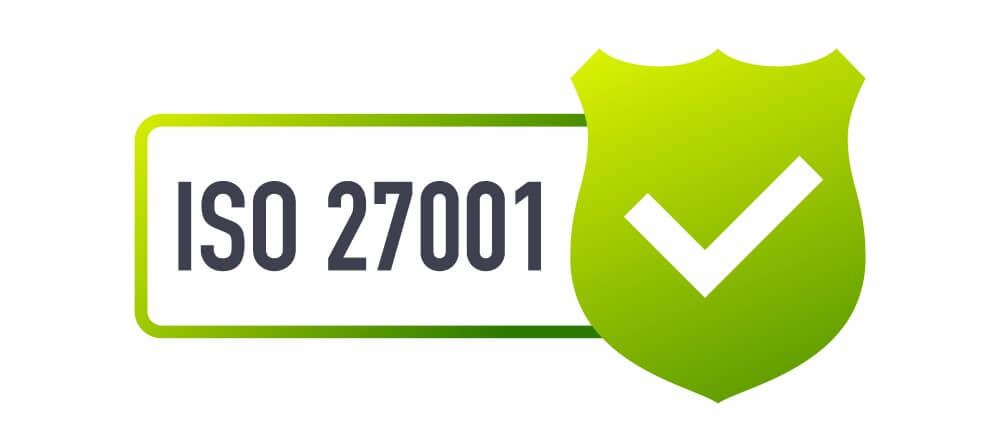
This standard provides many benefits to businesses that adopt this Certification. The benefits of ISO 27001 are listed below:
- Internationally Recognized
- Motivate senior leadership to maintain focus and drive in information security
- Adopt a risk-based approach that informs senior-level decision making
- Build trust and confidence with customers and business partners
- Comply with business, legal, contractual and regulatory obligations
- Reduce the need to fill out security questionnaires
- Stay competitive
- Win more deals.
ISO 27001 Certification Audit Explained
ISO 27001 is the international standard for an information security management system (ISMS) which sets out the best practices for organizations to save, process and protect their vital information assets. To be precise, it helps organizations to address their widespread information security concerns related to processes, people, and technology. However, to achieve the ISO 27001 certification, your organization needs to implement a strong ISMS company-wide and get it properly audited.
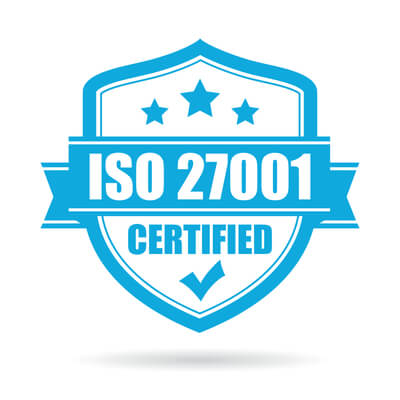
The following steps will help you achieve audit success for ISO 27001 certification.
1). Documentation Review
Start with reviewing your ISMS documentation. Make sure that the scope of your ISMS matches.
2). Management Review
This involves setting some checkpoints that the management of your organization must go through in your ISMS. They must ensure that ISMS covers all processes, information devices, or IT systems.
3). Field Review
In this stage, you need to assess how the ISMS works and know its effectiveness in securing the information. It would help if you interviewed the front-line staff and process managers for that.
4). Analytics
Using the evidence collected from the assessment of your ISMS and interviews, analyze the response of your ISMS regarding risk treatments and determine the control objectives. This analysis will help in improving your ISMS further.
5). Report
Present all the findings and analysis of the audit to your organization’s top-tier management through a comprehensive report. It generally should include scope, objectives, conclusions, and corrective actions for the ISMS.
Like every other ISO standard, ISO 27001 must be implemented systematically, including an internal audit. The above steps can be considered a checklist for successfully conducting your internal audit before ISO 27001 certification. However, it is better to consult with the TUV Austria Bureau of Inspection and Certification; we can guide you through implementation, auditing, and certification steps.
Why Should You Be Considering the ISO 27001 Certification?
As one of the critical management certifications, the ISO 27001 certification helps validate a business’s information security management system (ISMS) and ensures the overall protection of its information assets. It defines the requirements and structure for a strong ISMS to help organizations manage risks better, safeguard information processes and systems, and address security concerns of clients, employees, and partners.
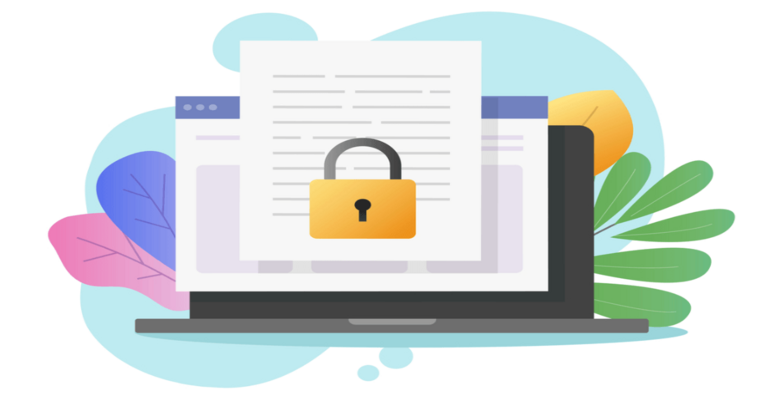
The ISO 27001 standard, in the first place, focuses on implementing an ISMS in your organization appropriate to your IT devices and computer systems, information processes, data assimilated, potential risks, and trending cybercrimes or thefts. The ISO 27001 certification strengthens your ISMS approach, so it is needed to ensure the overall security of your assets. It helps to:
- Cover security of widespread areas in your business, including asset management, financial data, employee information security, intellectual property security, paperwork or documents security, and cloud data.
- Promote practices to prevent security breaches, respond to sudden cyber attacks or data thefts, and recover business operations from security issues.
The other benefits of implementing the ISO 27001 standard come to your organization.
- Increase in clients’ confidence and boost in sales.
- Development of employees’ trust, which increases their retention.
- Better operational efficiency ensures business continuity.
- Improvement your business reputation in the industry.
- Faster discovery and response to potential risks can save you from data loss or reputation damage.
As more and more cybercrimes or privacy breaches are seen worldwide, it is better to be equipped and able to protect your valuable information. Large businesses and small organizations are equally vulnerable to data security breaches. The ISO 27001 certification is essential for any organization today as it helps implement an ISMS, which covers all security concerns and risks.
While businesses generally have some security controls or practices in place, an ISMS certified with the ISO 27001 standard helps them strongly reinforce those practices and additional ones across their organizations.
ISO 27001 and ISO 20000: What is the Difference?
Many confuse ISO 27001 and ISO 20000 standards and think both address organizations’ information management and security aspects. However, that is just a misconception, and there are huge differences between the two certifications! While ISO 27001 certification deals with information security management in organizations and helps protect their integrity. The latter certification is meant to address IT (Information Technology) service management to help inefficient delivery of services.
ISO 20000
The ISO 20000 certification is specifically designed for IT services management; hence, it only applies to IT-based firms or organizations. It defines a set of management practices that should be incorporated into their service management system to ensure fast, error-free, and efficient delivery of their services. The certification can help a firm or organization maximize client satisfaction and deal with process inconsistencies or issues in an organized way.
ISO 27001
This certification is aimed at assisting companies in forming and establishing a competent ISMS (Information Security Management System) that will help to protect the confidentiality of their valuable business data and stakeholders’ information, including client details, intellectual properties, and other informational assets. Thus, the key intention behind achieving ISO 27001 certifications is to prevent any crucial organization’s data from being stolen, lost, misused, misplaced, or hacked for cruel practices by industries.
The critical difference between the ISO 20000 and ISO 27001 certifications lies in their application. Their purpose and regulations clarify which types, industries, or organizations are eligible for these certifications. While the former has a narrower application, i.e., only IT-based services firms or organizations can get the certification, the latter has a much wider application. Almost every business sector and organization uses and stores information in any form, either manually or digitally, and thus needs an ISMS. The ISO 27001 standard applies to all.
What is ISO 27001 Certification Cost?
The company’s size doesn’t matter; investing in an ISO 27001 Information Security Management System (ISMS) may help you safeguard it. Obtaining ISO 27001 certification shows stakeholders that your system complies with the standard.
We cannot tell the exact price of this certification; the following factors determine the cost of ISO 27001 certification:
- The industry in which the company operates.
- The annual revenue of the company.
- The total number of employees in the company.
- ISO 9001 – Quality Management System
- ISO 14001 – Environmental Management System
- ISO 45001 – Occupational Health & Safety Management System
- ISO 55001 – Asset Management — Management Systems Requirements
- ISO 20000 – IT Service Management System
- ISO 22000 – Food Safety Management System
- HACCP – Food Safety Management System
- Halal Certification
- ISO 21001 – Educational Organizations Management System
- ISO 29990 – Learning Services Management System
- ISO 20121 – Sustainability Event Management System
- ISO 22301 – Business Continuity Management System
- ISO 37001 – Anti-Bribery Management System
- ISO 28000 – Supply Chain Security Management System
- ISO 13485 – Quality Management Systems for Medical Devices
- ISO 39001 – Road Traffic Safety Management System
- ISO 31000 – Risk Management – Guidelines
- ISO 22716 – Good Manufacturing Practices for Cosmetics
FAQ’s
What is an ISMS?
An ISMS is simply the application of 27001. A set of policies and procedures for the holistic management of sensitive data and related systems on various levels. There are several guidelines for documentation, auditing, continual improvement, and corrective and preventive action.
Its component goals are generally to:
- Minimize Risk
- Ensure Business Continuity
- Proactively limit the impact of security breaches.
How to Get ISO 27001 Certification?
Becoming ISO 27001 certified isn’t quick or easy; the time it takes varies from organization to organization and depends on many factors. Conservatively, businesses should spend around a year to become compliant and certified.
How long is the ISO 27001 certificate valid?
ISO 27001 certificate is usually issued for a period of three years. However, a certified company needs to perform satisfactorily in the surveillance audits conducted by the certifying body.
How to Verify ISO 27001 Certification?
- First, check the Agency or Company which is issued ISO Certification.
- 90% of Companies or Agencies have an excellent website with the verified certificate URL on their website where you need to mention certification details.
- You can verify whether ISO Certification is genuine or not.
Why is ISO 27001 Certification Important?
ISO 27001:2013 is a well-respected international information security standard that outlines the key processes and approaches a business needs to manage information security risk practically.